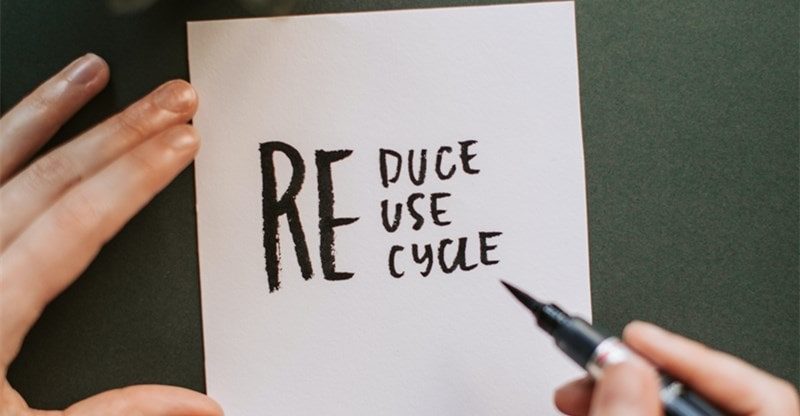How To Recycle And Why Is It Important To Do It?
Recycling is essential, but it seems like people aren’t aware of all the food and plastic waste that surrounds us. If you don’t see it often, it doesn’t mean it’s not a global problem. Improving our recycling habits will have a positive impact on the world we live in. It’s important for us and the natural environment.
Solid waste management is a universal issue that affects people around the world. In fact, there are many campaigns and services that encourage the community to recycle, click here to see the following footprints on how to deal with your waste properly.
So, if you believe that we’ve got time, we don’t. We must act now to reduce the world’s waste, as this is increasing daily. The amount of garbage is increasing because people are constantly buying products, plastic especially, and eventually creating even more waste.
The population continues to increase, so it means that if we don’t teach our children to recycle, there will be more waste. Many packages for tech devices are being created, and many of these products aren’t biodegradable. Eating fast food also means that we create additional waste, which is again, not biodegradable.
Where is all of this end up? We must understand that recycling is extremely important as waste has a negative impact on our planet. Although we still need much recycling education in our lives, it would help if you would start to recycle at home, work, or school.
Why Is Recycling Important?
Recycling is honestly a very simple process if done correctly. Collecting and processing materials that would normally be thrown away, but instead, they’re turned into new products. Think about a piece of furniture that you’ve decided to give a recondition– transforming something old into something new has a variety of benefits for you and the environment. Fewer materials and natural resources wasted, energy is saved, and less waste goes to landfill.
So, there is a difference in recycling, if done properly, of course. Materials such as plastic, cartons, food, batteries, drink cans, paper, tabs, bottles, and aluminum can be converted into new, useful products.
Recycling started many years ago, but our efforts still must increase, considering how much waste is caused every day. When recycling, we also save resources, sending less trash to the landfills, and help to reduce air and water pollution.
Garbage that goes in landfills rots in time and causes a disgusting odor, which pollutes the air. Recycling means that these toxins are reduced, which improves our health. Also, recycling paper means that we reduce the number of trees cut. This reduces the greenhouse effect due to the tree’s ability to absorb carbon dioxide in the air.
Now you understand why recycling is so important, and almost anything can be recycled! The only problem is that we need to stop wasting everything that could be reused.
How to Recycle
Once you learn the basics, recycling becomes an easy process that could be done by almost anyone. A good recycler knows what to throw away and what to recondition. Put away materials such as paper, metal cans, jugs, plastic bottles, cardboards, etc. The important thing is to understand the recycling process, so make sure you do your research first.
Deciding to recycle it’s a beneficial step for a better world. If you don’t know how to recycle at home, don’t worry. There are plenty of examples on the internet on how to reuse products to avoid world waste.
For example, magazines, cartons, flattened cardboard, newspaper, and office paper can be recycled if they’re not full of food or liquids. Hard plastic bottles, batteries, detergent containers can go into different compactors & balers. Let’s say you have a business, and you need to recycle—research what companies around the world use to minimize waste. Look for energy-efficient waste baler machines, suitable for all kinds of business waste. Don’t waste time and start exploring the benefits of recycling now.
Common Recyclables
Some materials cannot be recycled, so it’s best to have a list of the most common recyclable materials, which includes:
• Plastic – It is one of the few materials that can take anywhere from 5 to 600 years to decay.
• Metals – Soda cans, soup cans, aluminum foil. Before you recycle any of these metals, make sure you clean them up from any food particles.
• Glass – Drink bottles, jam jars, and dressing containers. Rinse before you recycle.
• Paper – Magazines, paperwork, cardboard boxes, and mail.
• Electronics – Mobile phones, laptops, computers, TVs, etc. Electronic waste products can contain toxic ingredients, so placing them properly before recycling is important for the planet.
• Batteries – One of the most recycled products are car batteries. Although they aren’t the only batteries that you can recycle, determine first the type of battery you want to recycle and then find the recycling location.
Tips for Recycling More Efficiently
Even though you might be a recycling GURU, there’s always room for improvement. So, here are some tips for recycling more efficiently and effectively.
• Before you recycle an item, make sure that it’s clean. Just a drop of food can contaminate the entire baler. Also, it can cause the other recyclable items to go straight to landfill.
• Squash carton boxes, so you create more space in your bin for more recycling.
• Choose designed balers and compactors at work, home, and school.
• Make sure you think twice before you recycle an item. Maybe you can recondition it and reuse it.
• Schools may also use your materials for their artwork.
• Only purchase products that can be recycled or reused.
• Encourage other people to recycle with you!
Where to Recycle?
Where to recycle? There are a variety of places where you can easily recycle. Recycling at home is based on your local city guidelines. Check the recycling department to find out what type of container should you use, how the materials are collected, which items are accepted, etc.
For an even much easier recycling process, browse a recycling database in your state, enter the product you want to recycle, your postal code, and find out nearby drop-off centers. Learning recycling options is such a stress-reliever, and increases the possibilities of others to follow you.



